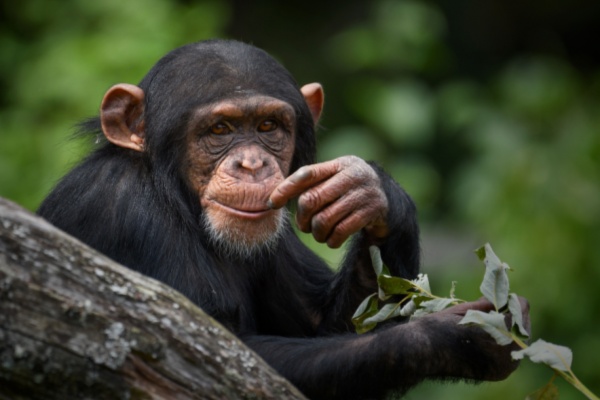On the heels of the finale of Chimp Crazy—the HBO docuseries from the director of Tiger King that highlights the dangers and cruelty inherent in private ownership of chimpanzees—the animal rights organization PETA is offering a $10,000 reward for evidence that results in the confiscation by law-enforcement authorities of chimpanzees languishing at roadside zoos, in private compounds, and in the pet trade.
There are fewer than 100 chimpanzees remaining in roadside zoos and private homes in the U.S. Three of those include: Bow, who is exploited in a private home in Missouri for his “owner” Aya Katz’s YouTube channel; Limbani, who is held at a notorious Miami roadside zoo featured in Tiger King and owned by former drug kingpin and convicted felon Mario Tabraue; and Ricky, who is held captive at Pam Rosaire’s secretive compound in Sarasota, where Chance, another chimpanzee featured in Chimp Crazy died of unknown causes at just 15 years old after appearing in Martin Scorsese’s The Wolf of Wall Street.
Whistleblowers with information about captive chimpanzees, including Bow, Limbani, or Ricky, are encouraged to contact PETA.
“Chimp Crazy shows that powerful primates aren’t playthings, and disaster could strike at any minute as long as Limbani, Bow, Ricky, and other chimpanzees are used by humans for ego gratification and social media ‘likes,’” says PETA Foundation General Counsel Brittany Peet, who appears in Chimp Crazy and worked on the cases featured in it. “PETA has already rescued several chimpanzees and assisted in their transfers to accredited sanctuaries and is now asking the public to help it rescue the last remaining captive primates—before it’s too late.”
PETA has facilitated the rescues of 24 chimpanzees—including seven who, having been held in solitary confinement, were given the opportunity to thrive in a sanctuary environment with other chimpanzees. The group is also urging people to support the new bipartisan Captive Primate Safety Act, which would prohibit private ownership, private breeding, and all commercial activity involving primates used in the pet trade. The historic Big Cat Public Safety Act, which prohibits private ownership of big cats and bans public contact with them, was passed following the success of Tiger King.
PETA—whose motto reads, in part, that “animals are not ours to use for entertainment”—points out that Every Animal Is Someone and offers free Empathy Kits for people who need a lesson in kindness. For more information, please visit PETA.org or follow the group on X, Facebook, or Instagram.
—
Photo Credit: Juniarto Juniarto / Shutterstock.com
